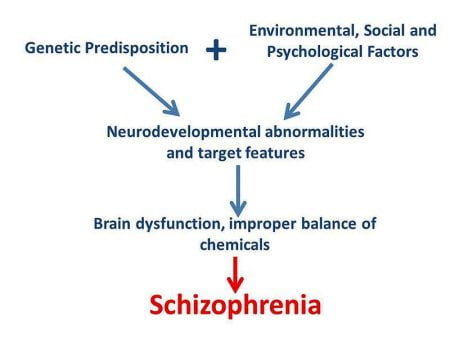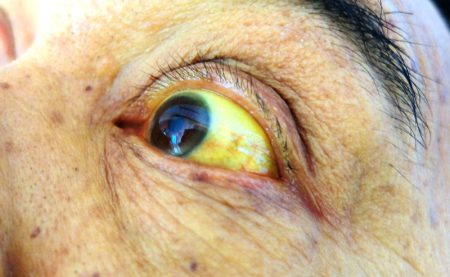Understanding About Ectopic Cushing Syndrome
- Updated on: Dec 19, 2023
- 3 min Read
- Published on Nov 4, 2019
Ectopic Cushing Syndrome and Its Causes
Ectopic Cushing syndrome is a form of Cushing syndrome in which a tumor outside the pituitary gland produces adrenocorticotropic hormone (ACTH). Cushing’s syndrome is the result of overproduction of glucocorticoid hormones that is secreted over a long period of time. Almost 15% of Cushing’s syndrome cases are due to ectopic Cushing’s syndrome.
Cushing syndrome due to ectopic (adrenocorticotropic hormone) ACTH secretion (EAS) is a form of ACTH-dependent Cushing syndrome caused due to over secretion of ACTH by a benign or, more often, malignant non-pituitary tumor.
One of the important causes of ectopic Cushing’s syndrome is ACTH secreting tumors. Other causes include over secretion of ACTH by the pituitary gland, tumors of the adrenal gland, prolonged administration of corticosteroid drugs commonly used to treat certain conditions like rheumatoid arthritis and asthma. Besides some small cell tumors of the lung, tumors of the thymus gland, islet cell tumors of the pancreas, and medullary carcinoma of the thyroid are other tumors that can secrete excess ACTH, and therefore result in ectopic Cushing syndrome, although this occurs rarely.
Generally, ectopic Cushing syndrome is caused by tumors that produce ACTH. These are the tumors that can, in rare cases, release ACTH and include such as:
- Benign carcinoid tumors of the lung
- Islet cell tumors of the pancreas
- Medullary carcinoma of the thyroid
- Small cell tumors of the lung
- Tumors of the thymus gland
Ectopic ACTH syndrome (EAS) is a form of Cushing’s disease caused by some non-pituitary tumors that secrete either adrenocorticotropic hormone (ACTH) and/or corticotropin-releasing hormone (CRH) and therefore cause bilateral adrenal hyperplasia. The clinical presentation of this syndrome resembles Cushing’s syndrome (CS), amenorrhea, hirsutism, hypertension, impotence, muscular wasting, skin atrophy, neuropsychiatric dysfunction, osteoporosis, truncal–central obesity, weight gain–water retention, moon face, weakness, fatigue, backache, headache, increased thirst, increased urination, diabetes mellitus (DM), and osteoporosis.
The male to female ratio of EAS is 1:1, however men are more likely to have EAS as cause of Cushing syndrome. Ectopic ACTH syndrome is one of the most important causes of Cushing syndrome in most cancer patients.
Majority of the cases of EAS are associated with:
- Small cell lung carcinoma
- Bronchial carcinoid tumors
- Thymic carcinoid/thymoma
- Pancreatic islet cell tumors
- Pheochromocytoma
- Medullary carcinoma
Cushing syndrome is caused by long term exposure to increased levels of either endogenous or exogenous glucocorticoids. Use of exogenous glucocorticoids should always be considered and excluded in the etiology of Cushing syndrome.
Symptoms of Ectopic Cushing Syndrome
Ectopic Cushing’s syndrome presents less dramatic features as compared to classic Cushing’s syndrome, but with higher blood pressure and lower potassium levels in the body. Weight loss is mostly found in ectopic Cushing syndrome due to underlying cancer.
Ectopic Cushing syndrome can cause a lot of different symptoms, and mostly the symptoms vary among people. Some people present many symptoms while others have only a few. Most people with any type of Cushing syndrome including ectopic Cushing syndrome have the following symptoms:
- Round and red face
- Full face (moon face)
- Impaired growth rate in children
- Weight gain
- Accumulation of fat on the trunk, but fat loss from the arms, legs, and buttocks (central obesity)
- Skin changes
- Skin infections
- Purple stretch marks called striae on the skin of the abdomen, thighs, upper arms, and breasts
- Thin skin
- Easy bruising in the skin
- Backache
- Bone pain
- Tenderness in the bones
- Accumulation of fat between the shoulders and above the collar bone
- Frequent rib and spine fractures caused by thinning of the bones
- Weak muscles of the hips and shoulders
- Diabetes mellitus type 2
- High blood pressure
- High cholesterol and triglycerides levels in the blood
Women with ectopic Cushing syndrome show symptoms like excessive hair growth in some areas of the body especially on the face, neck, chest, abdomen, and thighs, and irregular periods (menstruation).
Men with ECS may present symptoms like decreased or no desire for sex, impotency etc.
Other symptoms of ECS may include:
- Mental changes like depression, anxiety or behavioral changes
- Fatigue
- Headache
- Increased thirst and frequent urination
Treatment
One of the best treatments for ectopic Cushing’s disease is surgical removal of the tumor. However, this is usually possible when the tumor is benign (noncancerous). Surgical removal is not possible in case of cancerous or malignant tumors that have metastasized (spread to other areas of the body) before excessive cortisol has been diagnosed. In such situations, patients are given drugs to suppress over production of cortisol. Such drugs include: ketoconazole, aminoglutethimide, and metyrapone.
Surgical removal of the underlying tumor is one of the ideal treatments. Removal of the tumor may lead to full recovery. However, sometimes the condition may recur. In case of severe metastatic tumors, non surgical procedures and a multidisciplinary approach includes chemotherapy, radiotherapy, hormone analogues and/or radionuclide treatment to control growth of tumors and the underlying symptoms.
Sometimes, the tumor is unresectable, therefore anticortisolic medications like metyrapone, ketoconazole, mitotane or even etomidate may be recommended. Somatostatin and dopamine agonists have also occasionally been used. Bilateral adrenalectomy can be used to treat hypercortisolism in cases of non operable or non localized secreting tumors or in cases of poor tolerance and inefficacy of medical treatment.












